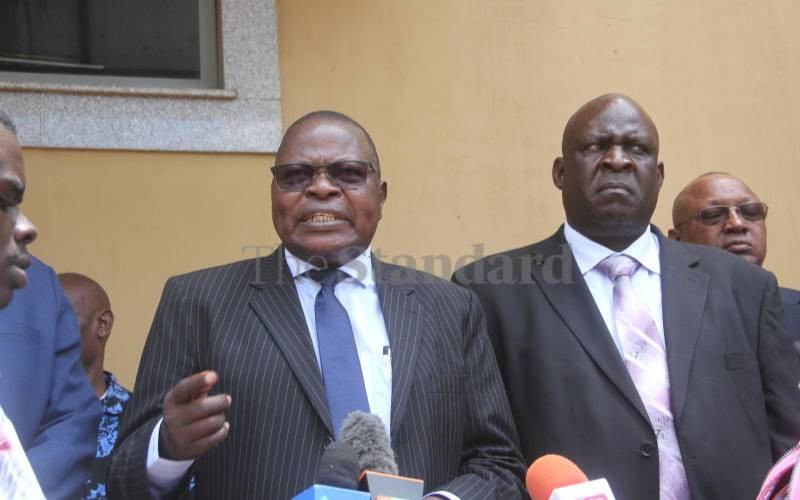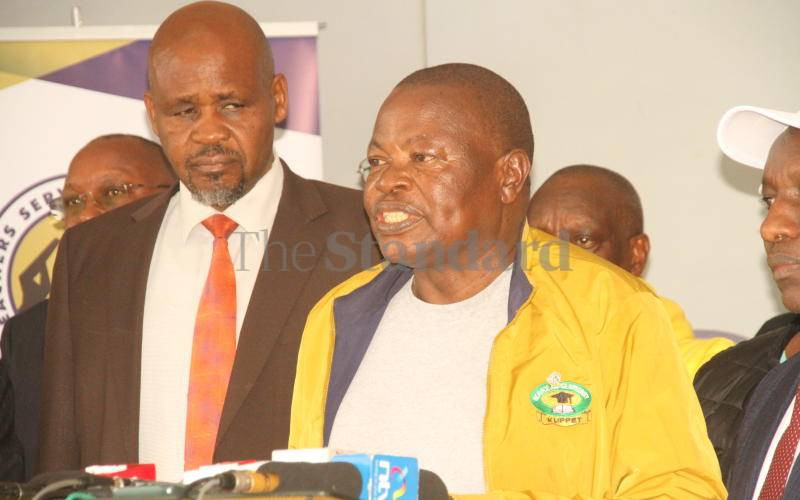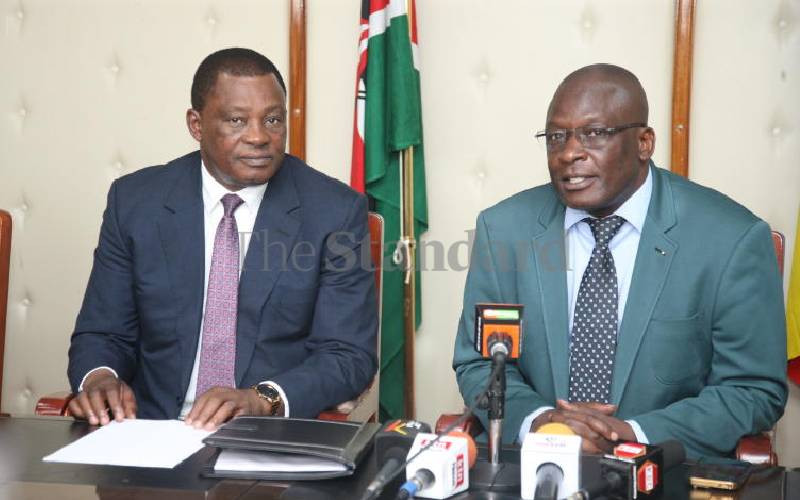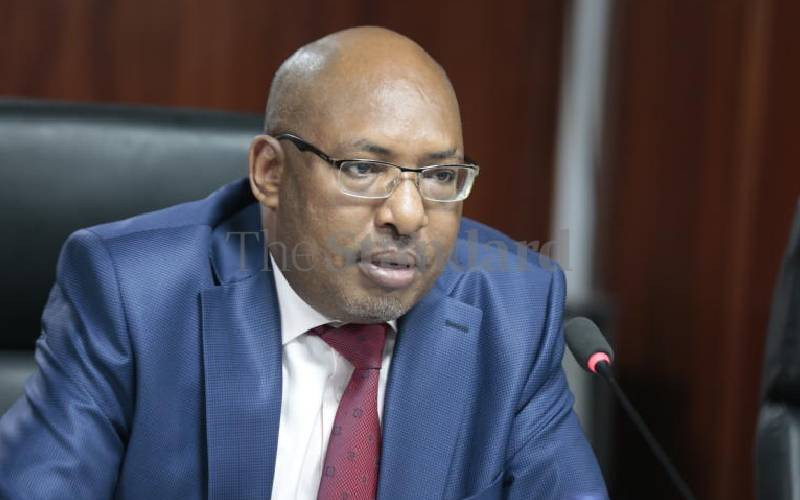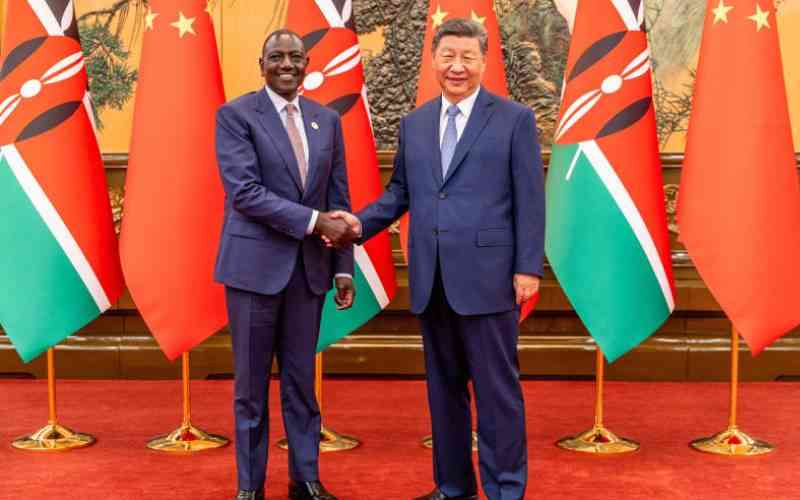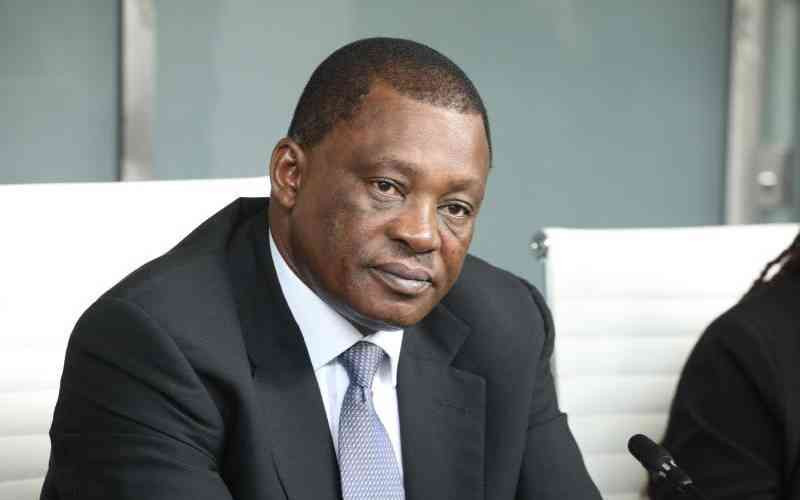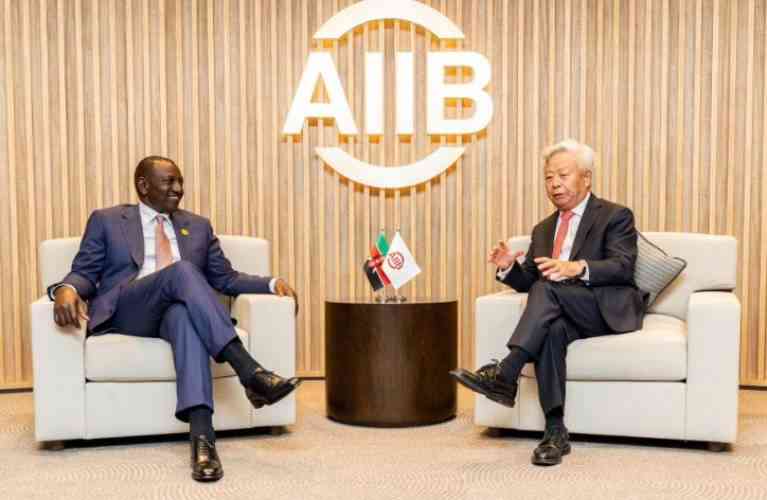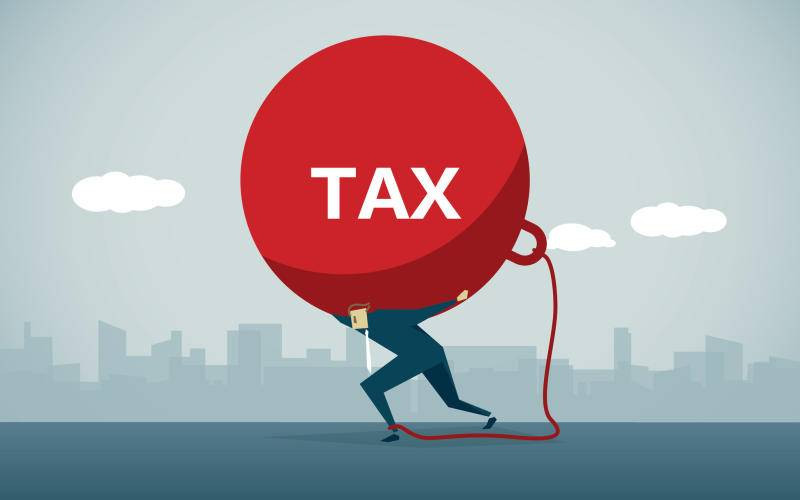
If the Hustlers get their way again with the National Health Insurance Fund regulations, they will have successfully hived off Sh3,205, Sh5,330 and Sh22,330 directly from the payslips of people earning a gross monthly salary of Sh50,000, Sh100,000 and Sh500,000 respectively in under one year in office.
By any means, this is a heavy sacrifice on top of monthly PAYE taxes. Using the KRA PAYE calculator for 2023, assuming each taxpayer above has no other relief or benefit, their PAYEs are Sh7,060, Sh22,060 and Sh142,060 respectively. Thus, the KK leadership misleads the public when they claim they are simply taking a few coins from employees.
On the consumption side for households, the high cost of living has also significantly diminished their purchasing power of what is left. But of fundamental interest to this article is the likely response of those targeted in these raids and Azimio's overtures to civil disobedience.
The question that must worry the KK political strategists and Treasury mandarins is whether Raila's call will appeal to this constituency or not. From this desk, there is every reason for the President and his men to go slow on their payslip raids.
Facts
The Stanford Encyclopedia of Philosophy observes that civil disobedience has often played a crucial role in bending the proverbial arc of the moral universe towards justice. It is the rod that Mahatma Gandhi effectively deployed to break the firm grip of the British colonial administration over India. But the term has its origins in Henry David Thoreau who refused to pay his State's poll tax, in Massachusetts, as a protest against the institution of slavery, the extermination of Native Americans, and the war against Mexico in 1846.
After willingly going to jail, he appealed to his fellow towns' people to do the same in public lectures delivered in 1848 and 1849. This was in justification for his actions as a way to withdraw cooperation with the government.
Rawls (1999) defines civil disobedience as a public, non-violent and conscientious breach of law undertaken with the aim of bringing about a change in laws or government policies. Thiri, Villamayor-Tomas, Scheidel and Demaria (2022) in an article on the contributions of social movements towards climate action describe civil disobedience to mean acts of mobilisation that involve some level of legal violations but are not intended to be violent. The question as to whether civil disobedience is a more effective approach to pressure public officials to act on matters of public interest has been studied widely. Climate change advocates are increasing resulting in civil disobedience as opposed to normal protests to demand action from governments. Available evidence from the literature suggests that this is an effective tool to gain public support and pressure public officials to take concrete action.
Lu (2022) and Bugden (2020) find that civil disobedience is more likely to garner media attention and thus legitimize the movement to attract support. This is because the media is more likely to focus its attention on sensational actions that 'violate social norms' and thus facilitate these activities to reach a wider audience. In effect, this increases awareness of the movements' course.
Furthermore, civil disobedience can effectively allow individuals to overcome political barriers when expressing themselves. This argument sits pretty well with the events surrounding the Finance Bill 2023 that introduces these punitive taxes. According to a Twitter post from the Hon. Kuria Kimani, MP for Mole who chaired the Finance and Planning Committee of Parliament, a total of at least 1,150 written submissions and over 223 oral presentations were made during the bill's public hearings.
This is a record for such kind of bill. With the bill now signed into law, the Committee estimates an additional Sh311 billion will be added to the public coffers. It is widely accepted in the public parlor that it was all about the additional billions the government can squeeze from the taxpayers. The affordable housing talk and job creation are simply political ploys to blind the already suffering employed taxpayers.
O'Brien, Selboe and Hayward (2018) in an article on the role of youth activism on Climate Change published in the Journal of Ecology and Society find that civil disobedience has the power to spark debate and create space and/or attract new actors to generate momentum. Importantly, if these new actors are professionals who demonstrate expertise and provide concrete data to support their views will increase the legitimacy of the movement (The Lancet Planetary Health, 2022).
In the course of the Finance Bill 2023 hearings, we all witnessed the increased activity of expert presentations and opinions in both mainstream and social media. However, political party position seems to have determined the fate of key provisions of the bill. The question left open is whether the targeted 3.1 million employees in the formal sector have given in to the political wheeler dealings of the day. Only time will tell when the data and key indicators start streaming in from first-quarter reports of government revenues for the year 2023/24.
Deterministic factors
In my view, three factors will play a critical role in whether the opposition's calls for civil disobedience will break the KK's eerie invincibility.
One is the question of legitimacy as implied in Articles 1(1)&(2) on the exercise of sovereign power by the people. Do those targeted believe the additional taxes to be fair and just? Do they perceive the party lines exploited to pass the bill as representative of their wishes from their elected representatives? I doubt if any of those in formal employment called upon to take this extra burden to support these taxes, including the MPs who voted for it outside of party politics.
Failure to take into account public submissions raises fundamental questions about the integrity of representation and the Constitutional thresholds of public participation envisioned under Article 201(1). If the majority feel the taxes fail on the implied thresholds, then responding to civil disobedience becomes an option in exercising their sovereign power.
Two is the trust capital deficiency that the current administration suffers most. While the top political leadership keeps on asking the taxpayer to sacrifice more, there is no tangible evidence of any measures to ensure prudence in the use of those resources. How then do we sacrifice not only our comfort but also basic needs to finance the opulence of political and bureaucratic elites?
If it's about tightening the belt, the presidency must lead by example. Only then can we genuinely understand their cries for more sacrifice, not mere political rhetoric.
For instance, how does any sane human being triple their contributions to NHIF in the midst of the ongoing crisis at the agency? After collecting billions monthly, they have to receive an exchequer bailout; customers denied services; and then force people to pump more into the same entity? Reforms or more resources, what precedes the other in all fairness?
Finally, are the failure to communicate effectively and the regime's anti-media sentiments. Public lectures from pulpits on Sundays will not earn the administration buy-in on their painful policy prescriptions from their victims. Besides, antagonising the media is an own-goal if the administration seeks to sway public opinion into their court.
As noted earlier, the opposition has the upper hand here because their call violates existing social norms. This is what sells Newspapers, and attracts TV viewership and radio listenership. More fundamentally, aren't the media owners and their crews not also victims of the said levies? How bad can the cards be?
 The Standard Group Plc is a multi-media organization with investments in media platforms spanning newspaper print
operations, television, radio broadcasting, digital and online services. The Standard Group is recognized as a
leading multi-media house in Kenya with a key influence in matters of national and international interest.
The Standard Group Plc is a multi-media organization with investments in media platforms spanning newspaper print
operations, television, radio broadcasting, digital and online services. The Standard Group is recognized as a
leading multi-media house in Kenya with a key influence in matters of national and international interest.

